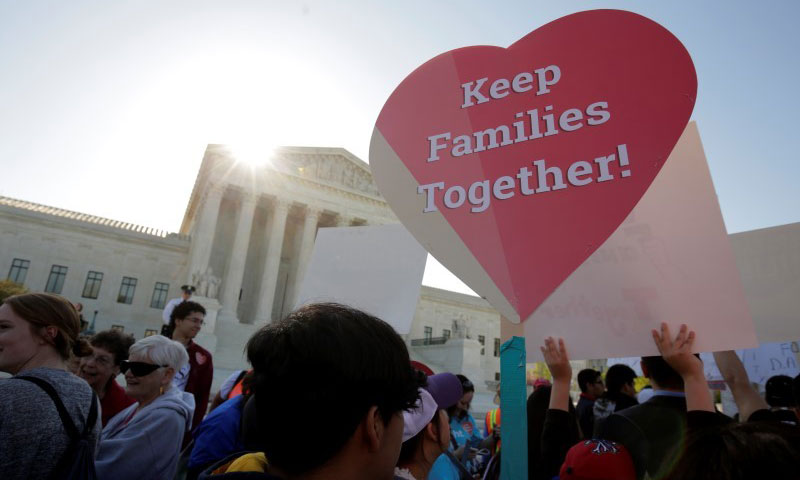
Groups: Supreme Court Immigration Deadlock Keeps Issue in Limbo
Last week's deadlock by the Supreme Court on the immigration issue is leading trade groups to call for Congress to take fresh action on immigration. The ruling comes at a time when the American Bar Association has weighed in on Supreme Court nominee Merrick Garland.
Last week’s deadlock by the Supreme Court on the immigration issue is leading trade groups to call for Congress to take fresh action on immigration. The ruling comes at a time when the American Bar Association has weighed in on Supreme Court nominee Merrick Garland.
A Supreme Court deadlock isn’t a common thing, representing just 1 percent of all Supreme Court decisions between 1946 and 2014.
Considering deadlocks are so rare—even when eight justices are involved, it only happens 7 percent of the time—it makes sense that one would arises on a politically contentious issue like immigration.
Last week, President Barack Obama’s 2014 executive action on immigration fell victim to a 4-4 vote in the case of United States v. Texas. The decision defers to a lower court decision that rolls back Deferred Action for Parents of Americans (DAPA), which allows the parents of first-generation American citizens or permanent residents to stay in the country without risk of deportation. A similar order focused on young children brought to the United States, Deferred Action for Childhood Arrivals (DACA), was not challenged in the court case and stays in effect.
How Big Is This Setback?
The move represents a clear setback for immigration groups, but not an insurmountable one, says Michael Jarecki, the vice chairman of the Chicago chapter of the American Immigration Lawyers Association (AILA).
“If the president wants to go forward with other executive actions, whether it be immigration or other contexts, this decision doesn’t say if the president can extend DACA or create the DAPA program,” Jarecki told the Chicago Tribune last week. “Had Congress or the Senate done what it should have done and heard the nomination for the Supreme Court, it’s possible that we would have gotten clear guidance on this, and the country could have moved forward with the law as they see it.”
AILA’s outgoing president, Victor D. Nieblas Pradis, criticized the ruling from a historic standpoint, telling Bloomberg BNA that there are “100 years of caselaw that indicates the executive branch has this power and many presidents have used the executive action power to impact immigration.”
The National Immigration Forum, meanwhile, emphasized the emotional toll that the decision creates for families of immigrants.
“With the Supreme Court deadlocked, the litigation on the president’s executive actions will continue, millions of families remain in limbo, and our immigration system remains broken,” the group’s executive director, Ali Noorani, said in a statement.
Calling on Congress to Act
Another group interested in the decision had a different kind of deadlock on its mind: the deadlock in Congress that led Obama to create the executive action in the first place. Tom Nassif, president and CEO of the Western Growers Association, called on Congress to step up.
“In light of this ruling, we urge the Administration and all members of Congress to reflect on their responsibilities to the American public and renew the immigration reform debate in earnest,” Nassif said in a statement. “Congress should bring forth a comprehensive immigration reform plan that considers agriculture’s unique needs. Any reform measure should include provisions granting legal status to existing farmworkers and one that creates a new, more workable and market-oriented visa program to ensure a future flow of labor.”
The deadlock in Congress is also holding up a confirmation hearing for Supreme Court nominee Merrick Garland, as the Republican-controlled Senate prefers that the next president choose a nominee to replace Antonin Scalia.
Thawing the ice slightly last week was the American Bar Association, which gave Garland its highest rating and released a report noting that legal scholars across the spectrum described Garland “as outstanding in all respects and cite specific evidence in support of that view.”
Pro-immigration activists protest outside of the Supreme Court. (Joshua Roberts/Reuters)






Comments